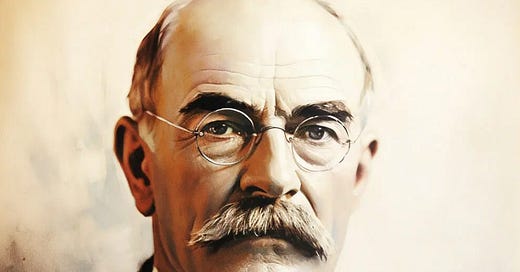“Words are, of course, the most powerful drug used by mankind.”
Rudyard Kipling
Rudyard Kipling, born on December 30, 1865, was a British author and poet best known for works such as The Jungle Book, Kim, and his many short stories and poems. His writing, which often reflected themes of British imperialism, adventure, and human nature, made him one of the most celebrated authors of his time. He won the Nobel Prize in Literature in 1907, becoming the first English-language writer to receive the award.
Kipling's quote, “Words are, of course, the most powerful drug used by mankind,” highlights the profound influence that language and communication have on human beings. By comparing words to a "drug," Kipling emphasizes their ability to affect emotions, thoughts, and behavior in ways that are both subtle and potent. Just as a drug can alter perception and mood, so too can words shape opinions, inspire action, or manipulate feelings.
This analogy underscores the power of rhetoric, literature, and communication in shaping society. Words can inspire revolutions, build or destroy relationships, foster empathy, or incite hatred. Throughout history, great speeches, books, and written ideas have moved entire nations, motivated social change, and altered the course of history. Kipling, as a writer, understood that words have the ability to touch the deepest parts of the human psyche, making them one of the most powerful tools—or weapons—at mankind’s disposal.
Moreover, Kipling’s comparison to a drug suggests that words can be addictive or dangerous. Just as drugs can be used to heal or harm, so too can words be wielded for good or ill. A well-crafted message can comfort and heal, but it can also deceive or manipulate. This duality of words as both a positive force and a potential threat highlights their immense responsibility.
In summary, Rudyard Kipling’s observation that words are the "most powerful drug" underscores the transformative power of language. His words remind us that language is not just a tool of communication but a force capable of influencing minds, hearts, and societies. Whether used to uplift or control, words carry a potency that is unmatched, making them one of humanity’s greatest powers.




